No, seriously, I mean it. This isn’t one of those “why is a raven like a writing desk?” questions (Alice in Wonderland reference, btw). I think this is a potentially interesting and vital question at the intersection of two major national policy debates: 1) how do we structure our nation’s international trade policy to maximize our global economic competitiveness and 2) how do we structure our nation’s immigration policy to…maximize our global economic competitiveness (assuming that we’re talking about the rational debate on the latter, rather than just straight up resistance to immigrants per se).
And not only do I think that immigration policy is intrinsically linked to our country’s success in international trade, but I also think that Washington is one of the states that is most impacted by this intersection. Here’s three reasons why:
1) Our state’s high tech sector: Most of you have probably heard of H-1B visas, which are visas that allow U.S. employers to temporarily employ foreign workers in high demand, high skill occupations. And you probably also know that Microsoft is one of the biggest users of this program in the country, with almost 4,000 H-1B workers here in the state at last count*. Is it coincidence that Microsoft is also one of the single largest (if not the single largest) exporter in the state/country? Not entirely. The fact that they recruit the best and the brightest from around the world allows them to develop and sell innovative products that everyone in the globe uses. And so it’s also not surprising that many of our other leading international trade companies use H-1Bs: Amazon, Nordstrom and Starbucks (retail), Big Fish Games (interactive media), the Gates Foundation and Fred Hutch (global health) and Callison (architecture), to name a few.
2) Our state’s agricultural sector: Most people – when they think of immigration – think of lower skilled immigrants. And certainly, as a percentage of immigrants, that’s the majority. But those same people might not immediately recognize just how vital those lower-skilled workers are to our economy, particularly in terms of agriculture. And Washington is relatively unique in the fact that it has both a hugely successful high tech sector and a similarly vibrant agricultural industry. And, like all states, Washington’s agricultural community relies on immigrant and migrant workers to harvest a huge percentage of our crops. The problem is that there’s already a significant shortage of workforce enough to do so; food is literally rotting on the vine, so to speak, because there aren’t enough low skilled workers in Washington to harvest it. And while this topic gets quickly caught up in the debate about illegal immigration, it is clear that our agricultural industry in Washington – which is one of the largest export industries in the state – cannot be successful without a reliable supply of immigrant workforce.
3) Relationships = access to market: Sometimes, we get lost in the mystique of international trade and forget that international business gets done the same as any other business; you build a relationship with your potential customer to the point that they agree to do business with you. Whether that customer is down the street or across the ocean is merely a matter of distance. And so, the fact that Washington has such a large immigrant community means that it has a higher percentage of people that can broker relationships in foreign markets. In my recent blog post on selling Washington wines to India, I neglected to mention that we have a large Indian population here in Washington (highly concentrated in East King County near Microsoft, for obvious reasons). Is there an increased chance that people in India are more likely to buy Washington wine because they have family and friends in Washington state? You bet your bippy, there is! But even more directly, I was talking to a guy from Nigeria the other day who wants to sell global health devices to Nigeria, and has the relationships back home to make it happen; there’s probably thousands of those types of entrepreneurs and networkers in our state, all because they immigrated here and brought their rolodexes with them. And that’s true for Washington in particular both because of our proximity to the Asia-Pacific region and the vibrancy and diversity of our economy that attracts people from across the globe.
Washington state: a unique mix of high tech, agriculture and geographic positioning that makes our international trade economy uniquely linked to immigration. What’s the exact right immigration reform approach for our country? That’s a topic for another day. But it’s a topic that all of us in international trade need to stay involved in.
*Why do they use so many foreign workers? Well, unfortunately, a significant reason is that there aren’t enough US workers with the right skill set…which is partly because most of the people taking advantage of our world-class university system to get these degrees are folks from other countries.

